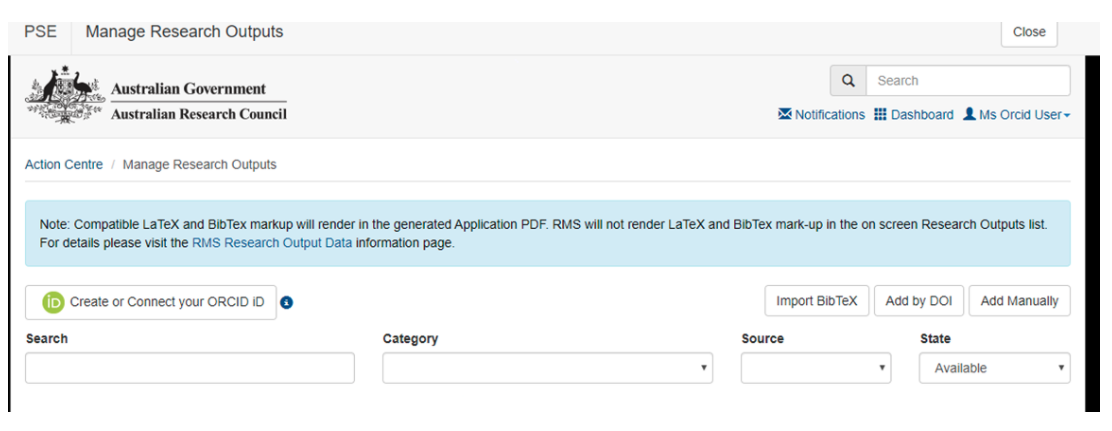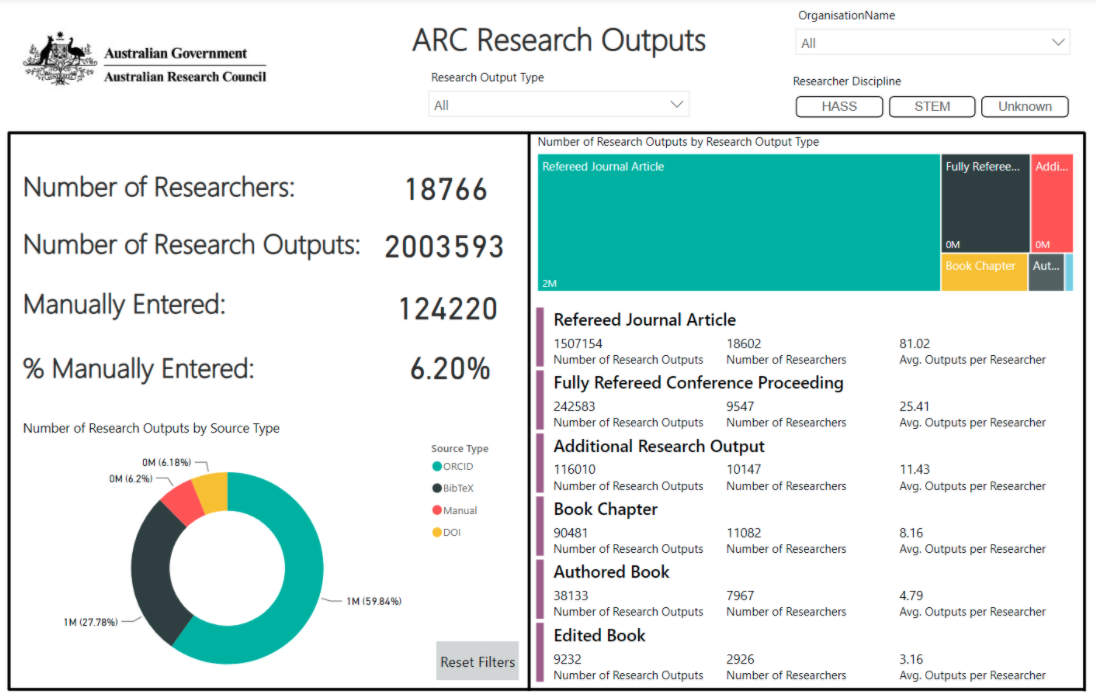[avatar user=”Laure Haak” size=”thumbnail” align=”left” /]
As a founding member of the Australian ORCID Consortium, the Australian Research Council (ARC) has been closely involved with the Australian research community in its journey in adopting ORCID and is pleased to share its experience of integrating ORCID within its Research Management System (RMS).
Reaching the goal of “enter once, reuse often”
The ARC is committed to streamlining its grant application process, and the opportunity to incorporate ORCID to auto-populate research outputs for researchers within RMS has proven particularly beneficial. In short, the ARC’s ORCID integration has made possible its goal of “enter once, reuse often” for research outputs in the research application process.

In October 2018, the ARC successfully launched a new functionality into the user profiles of RMS. This allowed researchers to auto-populate their research outputs (including publications and non-traditional research outputs) into their user profile. Once research outputs have been saved within their profile, researchers are able to use these to populate any grant applications, removing the need for repeated manual entry of research outputs from the grant application process.
Researchers and University research office staff are able to enter research output data at any time using four methods, including inserting or updating ORCID data into a researcher’s profile after the ORCID ID is authenticated, and the ARC is added as trusted party. Other entry methods entail exporting BibTeX or DOI data or the option to upload data manually.

A snapshot of the dashboard. Figures pictured are a later representation than described below.
Saving hours of work for thousands of researchers
This new capability will save many hours of work for thousands of researchers that submit applications to the ARC each year, and is an important part of the ARC’s broader commitment to reducing the burden of grant application on researchers.
The new functionality with ORCID was thoroughly tested with the ARC’s largest funding scheme, Discovery Projects, with 2,877 applications submitted over the period of December 2018 to February 2019 for the 2020 funding round. The auto-population functionality was embraced by the majority of the sector with over 1.4 million research outputs uploaded (over 940,800 of these imported using ORCID) into the RMS user profiles of over 14,000 researchers.
The process was not without its challenges, which was to be expected given the diversity of research output types and disciplinary characteristics, but these were well managed by both the ARC and the sector.

For the future, the ARC will continue to work on improvements to RMS as well as with its applicants, particularly around data quality, to further assist researchers in their application process experience.
